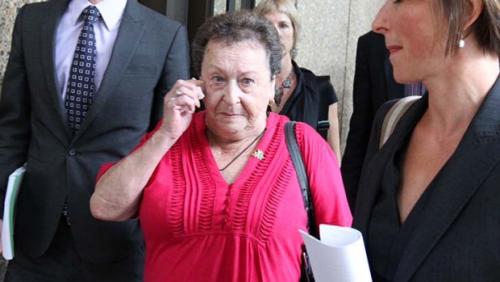Australian court rules cancer gene patent invalid
An Australian cancer survivor Wednesday triumphed in a landmark challenge against biotech companies, with the country's top court ruling they could not patent a gene linked to breast cancer.
Yvonne D'Arcy took her case to the High Court of Australia, arguing that the so-called breast cancer gene BRCA1 -- the mutation famously carried by Hollywood star Angelina Jolie -- was a naturally occurring substance.
Breast cancer is the leading cancer killer of women aged 20-59 worldwide, and supporters of the case had argued that patenting a gene could stymie medical research and testing.
The High Court found that while isolating the gene required human activity, that was not enough to classify it as a manufactured product and so make it patentable.
D'Arcy's case was previously dismissed by Australia's Federal Court, which ruled in favour of the two medical research companies that hold the patent -- US-based Myriad Genetics and Melbourne-based Genetic Technologies Ltd.
But the High Court agreed in February to hear an appeal and Darcy conceded that taking on the US corporation had appeared an uneven contest.
The arguments used in the Australian case were similar to those applied in the United States, where the Supreme Court ruled in 2013 that the isolation of BRCA1 itself was not enough to render genes patentable.
Experts said the Australian decision could impact access to genetic testing, medical research and treatments in the country.
Carriers of the BRCA1 mutation, in which the BRCA stands for BReast CAncer susceptibility, have a much higher risk of developing breast and ovarian cancer than those women without it.
Breast cancer claims some 458,000 lives every year, with around 1.38 million new cases recorded annually, according to the UN's World Health Organisation.
Related Posts

